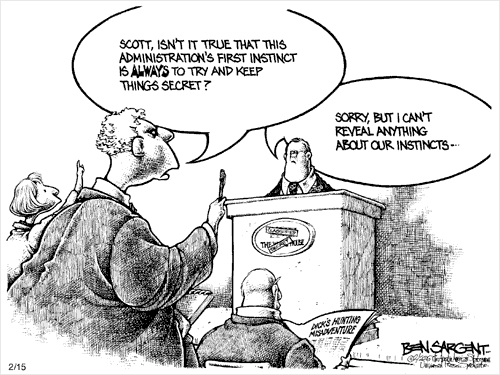
analysing a set of figures: the number of billionaires per trillion dollars of GDP for the major countries of the world. Heading the list is Russia with 87 billionaires for its $1.3 trillion of GDP. Coming second is India which has 55 billionaires for the $1.1 trillion of GDP that it generates. Why should this be worrying at all? After all, we did have a booming economy in the last few years. But some perspective would help to see this in the global context. Brazil, which is often cited as an example of very high income inequality, has only 18 billionaires despite a greater GDP than India, while Germany, boasting three times India’s GDP and a per capita income that is 40 times India’s, has just about the same number of billionaires.
For Rajan, who headed a committee on financial sector reforms in India, the numbers are alarming: “Too many people have gotten too rich based on their proximity to the government. If Russia is an oligarchy, how long can we resist calling India one?” It is his contention that reforms have created new sources of rents for the establishment, specially from the allocation of scarce national resources. This means that barring a few exceptions most of India’s billionaires have been created through sweet deals in land, mining, coal, oil and gas. (via Latha Jishnu: It's a stink and a powerful one).
You surely know this …
A favorite scam in the Indian mobile phone industry is to activate services that the customer has NOT asked for – and start charging him for it. It then becomes the customer responsibility to discontinue these services. If the customer does not pay the bill, his name gets reported to CIBIL, a credit bureau – which will make it difficult for the customer to access other credit services in future.
If he pays the bill , the telecom has succeeded in the scam. The effort required to discontinue these services, in many cases, is seemingly higher than the charge for these services – about Rs.20-30. (40-50 cents per month). The scam becomes outrageous when you multiply this amount with the number of subscribers – at last count nearly 40 crores (400 million).
The Mobile Recharge Scam
The same scam makes an appearance in mobile recharges. Customers have no way of knowing how and where their money has gone. Hiding behind walls of call centres and IVR machines, telecom companies in India are looting customers.
In the mobile recharge system, an additional victim is the retailer. 2%-4% of pre-paid recharges never reach the consumer. The retailer refunds the money to the customer – and the telecom company in most cases never reimburses the retailer. What is the retailer commission for these recharge services. 2.5%-4%. What are the number of recharges which dont reach the customer – 2%-4%.
Basically the retailer subsidizes the mobile phone companies by providing these services to the telecom customer. A similar story is playing out in credit card businesses, banking and unsecured loans.
Big Business and Big Government
They are both on the same side. Fighting the two Goliath is equally impossible for Desi Ram or Indy Joe. The outrage against these scams is building up – and will damage the faith that the Indian has in Indian business.
A word of advice
They are working hard to lose the trust that the average Indian has for Indian corporates. Stop all these wasteful CSR swill and propaganda – and just get your members to work their businesses cleanly. That itself will be a big enough CSR for Indian industry.
I doubt if India and Indians need or expect more from businesses – BIG or small.
Concentration Of Power
How does one measure concentration of power. Today the most popular methods are the Fortune 500 listing and the Forbes listing. These listings finally demonstrate that half the world’s economic output is controlled by about 25,000 individuals. Add another 25,000 politicians and bureaucrats. We have about 50,000 people managing the lives of 5 billion people. Read this with the faceless corporate entity aspect, hiding behind banks of call centers and telephone operators, it becomes more worrisome.
What is happening in India
Out of the 30 current Sensex stocks, which make up the Indian Benchmark Index, 15 started off as SME (small and medium enterprises) 20-30 years ago. These organizations today are lobbying (successfully) to ensure that other SMEs do not challenge and compete with these large corporations. Indian policy makers, apparently, cannot learn from successes.
And what you think is a right move …
On the other hand, limited liability companies have created a huge debt mountains. What about expanding liability, instead of limited liability. While LLCs can have limited outward liability, they can create unlimited inward liabilities – in the way of debt, bonds, debentures, notes, paper, et al.
These two elements, limited liability and a separate legal entity, have made these Frankensteins different from any previous association of businessmen. The legal structure of corporations allow actual owners to hide behind a legal facade, without liability. These corporations have access to large amounts of fiat currency. Old debts are repaid by taking new debts. Competition is killed by raising entry barriers – which is again done by accessing huge amounts of debt. Some of this borrowings are irredeemable – and called equity.
Limited liability of the shareholders has meant that various stakeholders usually have little or no recourse – when things don’t pan out. Some stakeholders (usually shareholders and management) have access only to an upside, other stake holders, actually, finally take the risk. Such companies resist any attempt at accountability.
It is this ability to evade ethical practices and issues that differentiates these corporations from other business enterprises. From the massacre of millions of Indians during the 1857 War (by the East India Company), the many regime changes that corporations have pushed, the record of these organizations has been far from average.
The largest employer in India is the SME sector
And the BJP does not talk about the SME at all. Just like the Congress is not bothered about them at all. Save the big industry. There is space for big industry and India needs big industry too.
The big moneybags call the shots
In both the Congress and the BJP. So, any belief that any one is any different is all wrong. They are more or less of the same agenda.
Shallow thinking
Both have the same limitation in the thinking – set by the external agenda and vocabulary. The difference is language. Congress swears by India (a Roman name of Bharat) and BJP swears by Hindustan and Hindutva (a Levantine name for Bharat). Both miss out on the Bharati nature of people.
No talk of Third currency
Neither (the Congress or the BJP) has the imagination or the strategic depth to think out of the Western box. They are all trying out the same tired Western cliches of IMF and World Bank reform – which is going nowhere. It is the IMF and World Bank which keep the Third World poor and backward.
Sad.






























